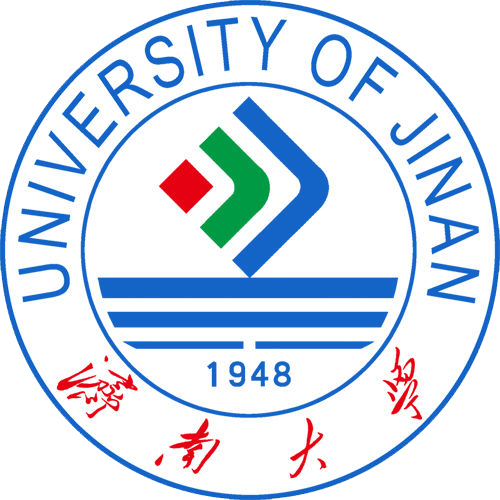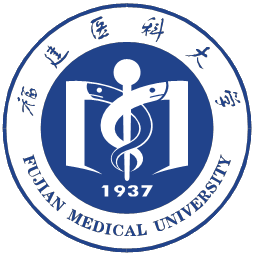
 Introduction
Introduction About the Program
About the ProgramSpecial Scholarship for SICAS International Students in University of Jinan (click to apply)
Introduction
Dermatology is the branch of medicine dealing with the hair, nails, skin and its diseases. It is a unique specialty with both medical and surgical aspects.A dermatologist takes care of diseases, in the widest sense, and some cosmetic problems of the skin, scalp, hair, and nails.Venereology is a branch of medicine with the study and treatment of sexually transmitted diseases. A physician specializing in venereology is called a venereologist. The specialty is sometimes combined with dermatology. The venereal diseases include bacterial, viral, fungal, and parasitic infections. Some of the important diseases are HIV infection, syphilis, gonorrhea, candidiasis, herpes simplex, human papillomavirus infection, and genital scabies. Other sexually transmitted infections studied in the field include Chancroid, Lymphogranuloma venereum, Granuloma inguinale, Hepatitis B, and Cytomegalovirus infection.
Leprosy,Psoriasis,Genodermatosis,Sexually Communicable Diseases.
Whychoosetostudythisprogram?
This program is taught in English, and all lecturers and professors in this program are specially trained for international students. We started this program in 2002, and now we have more than 150 students from Pakistan, Bangladesh, Afghanistan, English, and the United States etc. The curriculum of this program is based on the British Commonwealth educational system.Curriculum The curriculum of this program is based on the British Commonwealth educational system. Part 1. Chinese Course (it would be medical Chinese, lasting for 2 to 3 years)
Part 2. Basic Courses of Clinical Medicine Cell Biology, Human Anatomy, Histology and Embryology, Neuroanatomy, Physiology, Biochemistry, Molecular Biology, Medical Microbiology, Medical Immunology, Human Parasitology, Pathology, Pathophysiology, Medical Genetics, Behavioral Sciences, Pharmacology and Therapeutics, Medical Ethics, Sectional and Imaging Anatomy
part 3. Clinical medicine traditional Chinese Medicine, Diagnostics, Preventive Medicine, Science of Operation, Medical Image-ology, Nuclear Medicine, Internal Medicine, Surgery, Gynecology and Obstetrics, Pediatrics, Neurology, Psychiatry, Tropical Medicine, Infectious Diseases, Ophthalmology, Otorhinolaryngology, Dentistry, Dermatology and Venereology
Note:Everysemester'scurriculumwillbeadjustedaccordingtotheuniversityarrangementatthattime.
Degree Awarded Students are required to complete the curriculum and course, fulfill the designated number of credits.Successful candidates will receive a graduation certificate along with the Master's degree, in accordance to the regulation of the Degree Awarding Committee.
Career Following completion of entry-level training, newly graduated medical practitioners are often required to undertake a period of supervised practice before the licensure, or registration, is granted, typically one or two years. This period may be referred to as "internship", "conditional registration", or "foundation programme". Then, doctors may finally follow specialty training in internal medicine if they wish, typically being selected to training programs through competition.
 About University of Jinan
About University of Jinan
Culinary Arts and Nutriology (Bachelor’s degree, 4 years)
Introduction
The speciality of culinary Arts and Nutriology is provided by School of Hotel Management, which is one of the bases to train food and drink management personnel in Shandong Province. Students who successfully complete the courses will be conferred bachelor’s degree, the highest level certificate that could be issued by a university in Shandong.
The speciality has 14 teachers, 3 of them being state-level food appraisers, and 5 provincial-level food appraisers. Awards won by professional teachers include Gold Cook in 2000 Chinese Cookery Contest, Silver medal in 2003 Cookery Contest, and the first place in Wheaten Food Cookery Contest.
The School of Hotel Management has won the Shandong Provincial Award for Contributor of Talent Training in Cuisine and Catering Industry in 2008, and was named National Excellency Training Center in Tourism and Hotel Industry in 2010.The school has cooperative relationship with some restaurants and hotels both in China and abroad which can provide enough practice bases for the students.
Main Courses
Introduction
The Spring semester of the program is from March to July; Autumn semester is from September to January.
Objectives
--- Enrich your life experience.
 Accommodation
Accommodation
Living on Campus
Introduction
Life on campus is very convenient and safe. Most Chinese students will choose to live in the dormitories on campus because of its reasonable prices, complete facilities and safe surroundings. Most of china’s universities provide international students dormitories for foreign students. Usually there are single-room, double-room and three-room dormitories for foreign students. The students can choose what they like. Most of the dormitories are equipped with necessary facilities including internet access, TV, basic furniture, toilet, telephone or even kitchens. Universities in the north also provide heaters in winter. As to the fees it is quite reasonable. However, the prices vary greatly from 20 RMB/day to 100 RMB/day determined by different universities and different types of dormitories.
Fee Structure
1.Accommodation fee:
Double Room: RMB 30/day RMB 4500/semester
Four-person Room: RMB 15/day RMB 2250/semester
3.Insurance: RMB 606/year; RMB 303/six months
4.Deposit for accommodation: RMB 500/year
5.Deposit for dorm room key: RMB 100/year
6. Textbook Fee: RMB 38/year
7. Bedding: RMB 400
8. Residence permit: RMB 400/year(pay at Entry Administration Bureau)
Living off campus
If you don’t like to live on campus, you can choose to rent a room near your campus or join a local homestay family. Rent a House, apartment or flat.
Most of the universities will allow foreign students to live off campus while you have to inform the university and get the permission from the university first before you make the arrangement. Some schools may have strict accommodation regulation for the sake of students’ safety so you may be required to go through some official forms to get the permission for living off campus.
Off Campus hotels (click the pics to enlarge)
Average Rents for off-campus living
Depending on different cities, here is the general rang of the price for renting:
One-bedroom apartment: RMB 800-2500 per month
Two-bedroom apartment: RMB 1000-4500 per month
What’s more, the price varies depending on the condition of the apartment, facilities/furnishings, and especially the location
 Fees
Fees Admissions Process
Admissions Process  Entry Requirements
Entry Requirements1. Master's Program
2. Applicants must be non-Chinese citizens in good health.Hold a Bachelor's degree.
3. Certificate of HSK 6.
 Application Materials
Application Materials1. application form
2. personal resume
3. scanned copy of passport
4. Graduation certificate or Bachelor’s Degree
5. Bachelor’s Degree Transcript
6. Study Plan in University of Jinan
7. Two letters of recommendation from two associate professors or higher
 Reviews
Reviews Scholarship
Scholarship
Tuition
Start Date